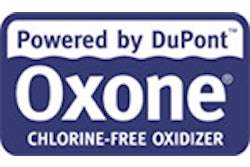
"Why can I get this product online for less?"
It’s an all-too-common question that has frustrated brick-and-mortar dealers for years. Products like pumps and motors — bigger-ticket items that offer a much healthier margin than staples like chemicals, making them an invaluable part of the bottom line — can be found online at lower prices than dealers can offer. On occasion, those products are even listed at prices below what dealers pay to buy them in the first place.
It’s a lose-lose situation for everyone involved. Customers who discover these discounted online products suspect they’re getting gouged on pricing. And dealers, feeling defeated, are pushed to cut prices to make a sale. Compounded over a season of equipment sales, it’s easy to see how online sales can take a huge bite out of revenue.
For years, when appealing to their manufacturing partners for help, dealers often heard little could be done to curtail the internet’s competitive advantage. After all, how can you help your dealer base contend with an economic force as strong, and unregulated, as the internet?
In the ongoing David and Goliath battle that is the brick-and-mortar dealer versus the internet, however, 2019 is a watershed year. The Big 3, a group that comprises Zodiac, Hayward and Pentair, have taken steps to amend their trade-only programs by taking SKUs offline, raising prices and/or amending warranty plans.
Jack Pogosyan, owner of repair outfit Backyard Pools (Pasadena, Calif.), welcomes these changes.
“It’s long overdue,” he says. “For the past several years, it’s been a thorn in my side.”
Undercutting dealers isn’t the only problem with online sales of pool equipment. For professionals like Dan Lenz, vice president at All Seasons Pools & Spas (Orland Park, Ill.), there’s also great concern the practice may put homeowners at risk.
RELATED: Zodiac Pulls Jandy Products from E-Commerce Sites
“There are way too many people buying products like variable-speed pumps and doing the installation themselves, or having a brother-in-law who’s a plumber help them,” he says. “They don’t know anything about flow requirements and issues that are created by running these pumps at speeds their systems are not designed for. It’s just asking for people to get hurt.”
Here, we talk to representatives from the Big 3 to get a behind-the-scenes look at how, and why, these programs were developed.
ZODIAC QUITS THE INTERNET
As director of professional channel marketing for Zodiac, Donny Cislo is often on the front lines.
In an official capacity, his job is to help dealers with warranties, lead generation, marketing allowances, loyalty programs and more. Unofficially, he’s often the person who lends an ear to frustrated dealers.
“I spend a lot of time being out in the field with dealers and reps, and we’ve seen the heartache that this provides to our dealer base,” Cislo says. “... I hear the pain points that dealers have. And at the end of the day, we need to protect our dealers’ ability to conduct their business profitably.”
Zodiac first took steps to address online sales in 2014 with the development of its Trade Series Exclusive line, making it the first of the Big 3 to establish a trade-only product line. In October last year, the company took a huge leap forward when it announced the entire Jandy line would be taken offline.
The announcement was shortly followed by a media blitz declaring Jandy is “quitting the internet.” If you attended The Pool & Spa Show in Atlantic City this year, the message was hard to miss — the roads were lined with bright yellow billboards touting the message.
“We wanted to put the stake in the ground that we’re side-by-side with our dealers,” Cislo says. “We understand what they’re going through, we understand how we need to be able to back them.”
The program is supported by a black-and- white warranty policy: Only products purchased from and installed by a pool professional qualify for a warranty. That’s it.
Pros like Pogosyan have found the revised policy turns what was previously a contentious negotiation into a short, quickly resolved conversation.
“You don’t go to a donut shop and say, Hey, here’s the flour and sugar, make me a donut.’ You go and say, ‘I would like a donut.’ The same goes with equipment,” he says. “You’ve got a professional-grade product that requires a professional to install it to keep the warranties valid. That puts the customer at ease and they feel more confident about buying from me. So the haggling has improved by 85% or so.”
The new policy has proven fruitful from a financial standpoint as well.
“Since Zodiac has taken this initiative, my bottom line has dramatically increased,” he says. “I’ve increased my Zodiac sales over $50,000 from last year.”
HAYWARD LEVELS THE PLAYING FIELD
Hayward has an existing trade-only program, the Expert Line, that dates back to 2015. In April, the company announced it would greatly expand this program by removing more than 900 SKUs from the internet, which means 80% of Hayward’s product line can only be purchased by Hayward dealers. Warranties have also changed: Products from the Expert Line qualify for a three-year (at a minimum) parts and labor warranty. The open line (comprised of products that can be purchased online) will have a one-year warranty on parts only.
RELATED: Hayward Dramatically Expands Trade-Only Line
“Some time last year, we were doing deeper dives into our business, and understanding what’s working well and what frankly was not working as well as it could,” says Hayward Vice President of Marketing Dave MacNair. “It’s been clear for awhile that online sales are frustrating, at the least, for our trade partners.”
According to MacNair, there were many considerations to weigh when developing the new policy. For example, online sales take a toll on Hayward (and any manufacturer) by incurring extra costs in freight, damaged product and returns — a pertinent point given consumers are far more likely to incorrectly spec equipment than a professional. At the same time, it’s impossible to ignore the role internet commerce plays in our lives. With all that in mind, the new policy is designed to strike a balance between both sides.
“There’s a place in the world for online business. Many of us as consumers do a lot of our shopping online. We recognize that,” he says. “We’re not going to artificially eliminate that from our business. But what we are going to do is fundamentally change how we do business with online sellers as well as offline or brick-and-mortar sellers.”
In addition to the impressive number of SKUs going offline, Hayward’s new plan is notable for another reason: In April, the company increased the cost of products in the open line by up to 15%.
“At the dealer level, this is I think nothing but great news,” MacNair says. “Dealers — be they retailers, servicers or builders — will be better able to compete with internet sellers in the marketplace and be rewarded for all the value they provide to the pool owners.”
PENTAIR PIQUES INTEREST
After Zodiac and Hayward’s announcements, Pentair supporters have wondered how the manufacturer would respond. As of this writing, the company has yet to officially announce a change to its Trade Grade program, but plans are underway and will be announced by the end of the third quarter.
“Our goal isn’t to react to the changes our competitors have made,” says Marcus Phillips, Pentair’s director of marketing. “We want to take our time and make sure we roll out changes that benefit both the consumer and our trade partners. Ultimately, our goal is to strengthen the Trade Grade offering just as we’ve done for the last four years.”
For example, earlier this year the manufacturer announced it would remove the Sta-Rite line from the internet. And over the past two years, every product Pentair has introduced has been under the Trade Grade banner. According to Phillips, the upcoming changes to the Trade Grade program will target dealer pain points like pricing and product differentiation.
“We strongly believe having differentiated products for the brick and mortar versus the internet is the way to make this work,” he says. “Thinking about all of the challenges that our trade partners are facing with pricing and profitability, I think that’s really what they’re up against with the internet right now.”
Pentair has also established a product cycle that helps support the trade. When a new product is released into the Trade Grade program, the previous, non-trade-only product is made obsolete. A new part number is assigned and put online at a higher cost.
“That gives us a very valuable, viable way to compete with what’s going on online,” Lenz says, describing the system from a dealer’s perspective. “For instance, we know that people who are buying pumps online and then turning around to sell them are paying more than we’re paying for a pump that is higher quality, has more features and comes with a far better warranty.”
RELATED: How to be Successful in Retail (According to A Retailer)
In addition to its upcoming efforts, Pentair has existing programs in place to support its dealer network. Over the past five years, for example, the company has made significant investments in consumer marketing, including search engine marketing, email campaigns, internet radio and more.
“It’s all tailored to be where the consumer is doing their homework,” Phillips says. “Wherever they’re doing their research, we want to make sure the Pentair brand comes up.”
These consumer marketing campaigns are designed to lead buyers to a dealer locator tool, which in turn funnels consumers directly to brick-and-mortar stores.
“Our dealers have achieved a lot of success from that, so we’re proud to continue that effort,” Phillips says.
ENFORCEMENT MEASURES
Talk is cheap, as the saying goes. The Big 3 understand channel limitations are difficult, if not impossible, to enforce, without consistent monitoring. To ensure the protection of their trade-only product lines, Hayward and Pentair have contracted third-party vendors who scour the internet for violations. Zodiac established a dedicated in-house team to do the same thing.
“They’re monitoring an unlimited number of products, an unlimited number of URLs,” MacNair says. “They’re scraping the web not once a week, not once a day, but on a real time basis throughout the day and then they built us a custom dashboard that gives us access to violators. They’ll track a first-time violator versus a two-time violator and assist us with enforcement.”
Specifics differ from company to company, but in general, those who violate product policies are first given warnings and asked to take down listings for trade-only products. For repeat offenders, manufacturers plan to cut off partner benefits and/ or remove them from their partner network altogether.
Dealers can take matters into their own hands as well. Zodiac and Pentair have a hotline and email address, respectively, where dealers can send tips on violators.
“People are certainly using the hotline,” Cislo says. “I’ll tell you they were using it a lot more when we first launched, so the fact that it’s not being used as much anymore is, I believe, a very positive indication of our success.”
All three manufacturers have high hopes for their programs, but the internet is enigmatic by nature. To an extent, it’s like a game of whack-a-mole — as soon as you take down one vendor, more crop up.
“We’re already achieving over 80% compliance,” Cislo says. “But at the end of the day, if anyone says they’re going to have a 100% enforcement rate, I can’t see that being an accurate number because a John or a Sally can go on their computer and put something out on eBay and just sell that one product. But we’re going after the big dogs, the big fishes, and we’re going after those onesies and twosies. And we’ve had great acceptance and adoption from them.”
A BETTER FUTURE?
The pool industry has always had to contend with a mixed reputation: fly-by-night contractors, pushy salespeople, low-balling servicers and builders — the list is long.
“We’re constantly battling uphill because of so much unprofessionalism that goes on,” Lenz says.
Online sales, he says, clouds things even further. The availability of professional-level equipment for sale online to anyone debases the time, energy and education that goes into high-quality service. “The more that people are able to buy stuff on the internet, the more it devalues our industry. And our industry can’t afford to be devalued.”
RELATED: Zodiac Adds Programs to Bolster Brick-and-Mortar Sales
Still, Lenz is optimistic new policy changes can help reinforce the important role the pool professional plays in the backyard. “In general, I think these changes are good,” he says.
All three manufacturers are on the same page: Trade-only product policies have a lot of potential to affect change on multiple levels in the industry.
“Our industry is going to grow faster if we deliver better experiences for pool owners. It seems like common sense, but sometimes as an industry we haven’t always acted to further that end goal,” MacNair says. “We’re really excited because we think this strategy is going to fundamentally resolve multiple issues in the industry. It’s going to help consumers get the best experience possible and therefore spread better word of mouth for the industry and help us grow, and we also think it’s going to better recognize and reward the value that our trade partners provide in this industry.”












































